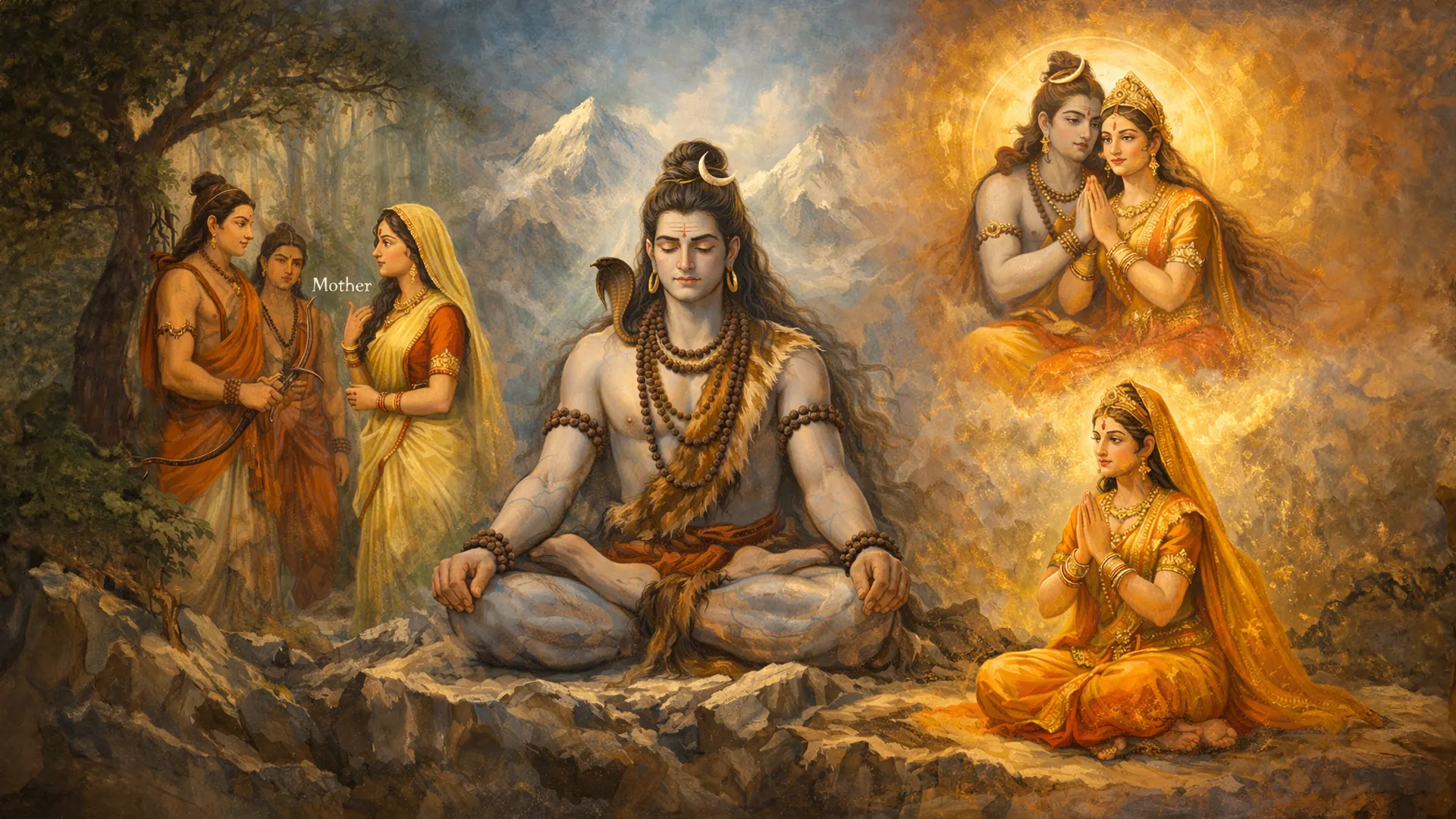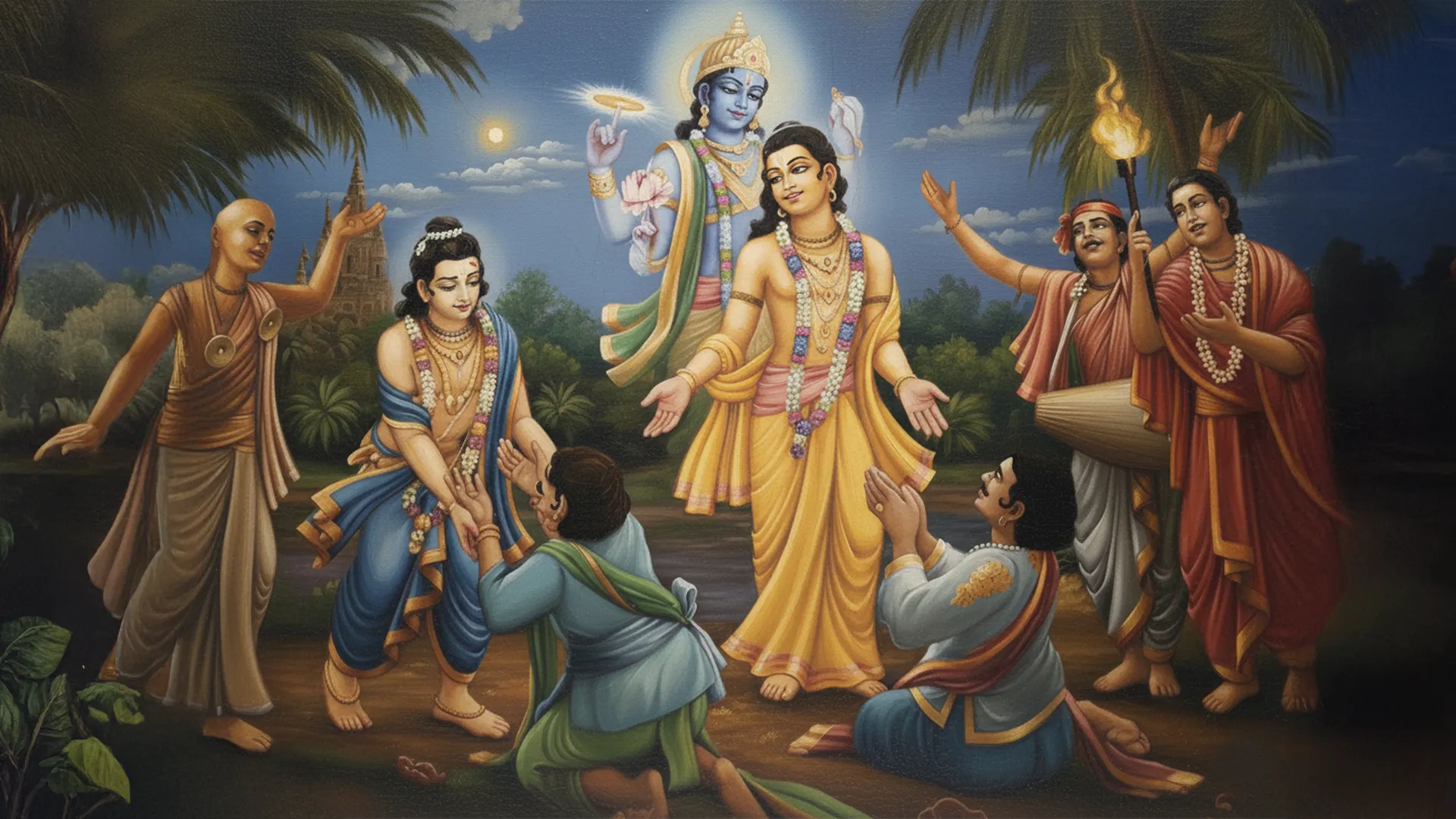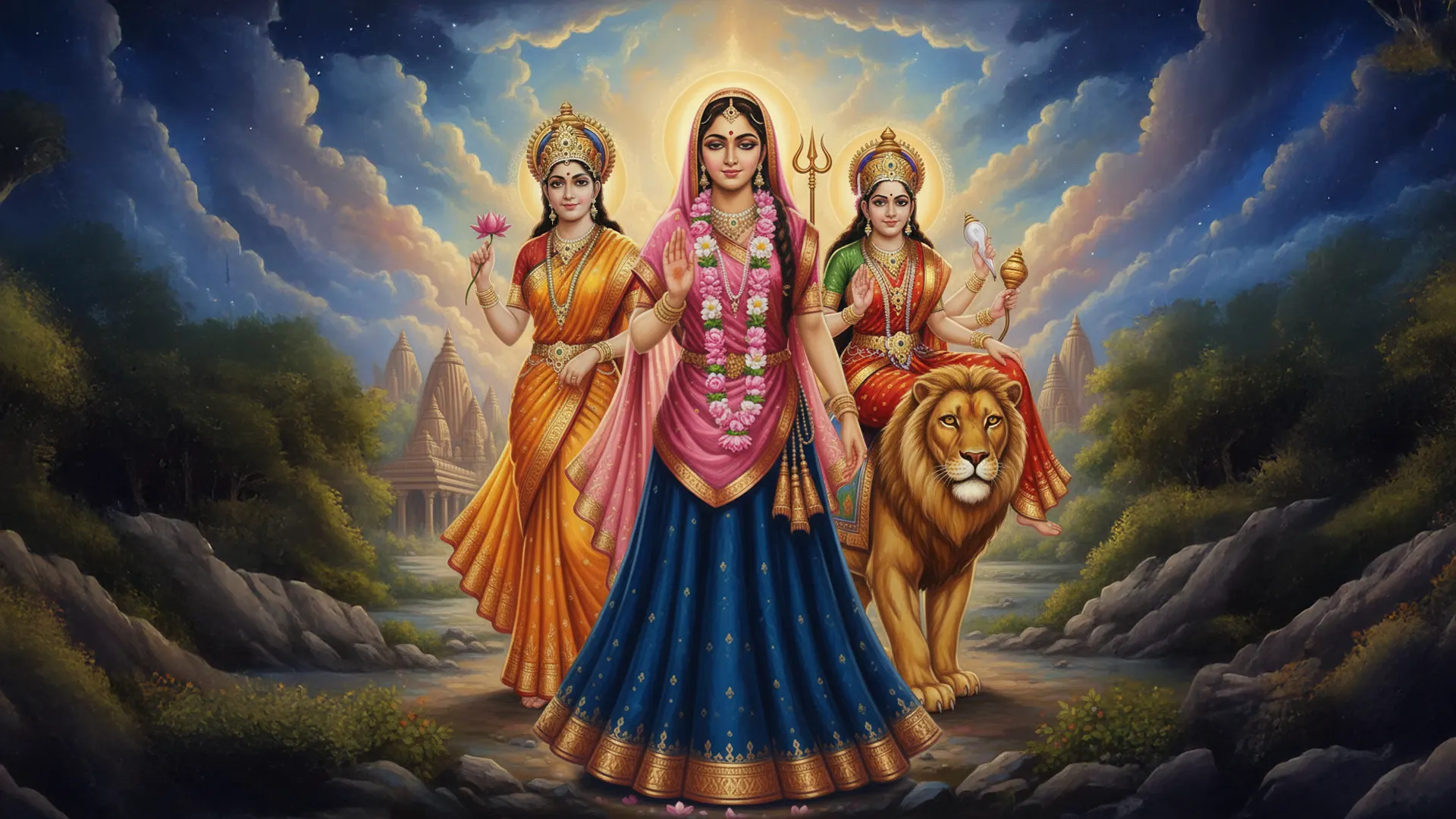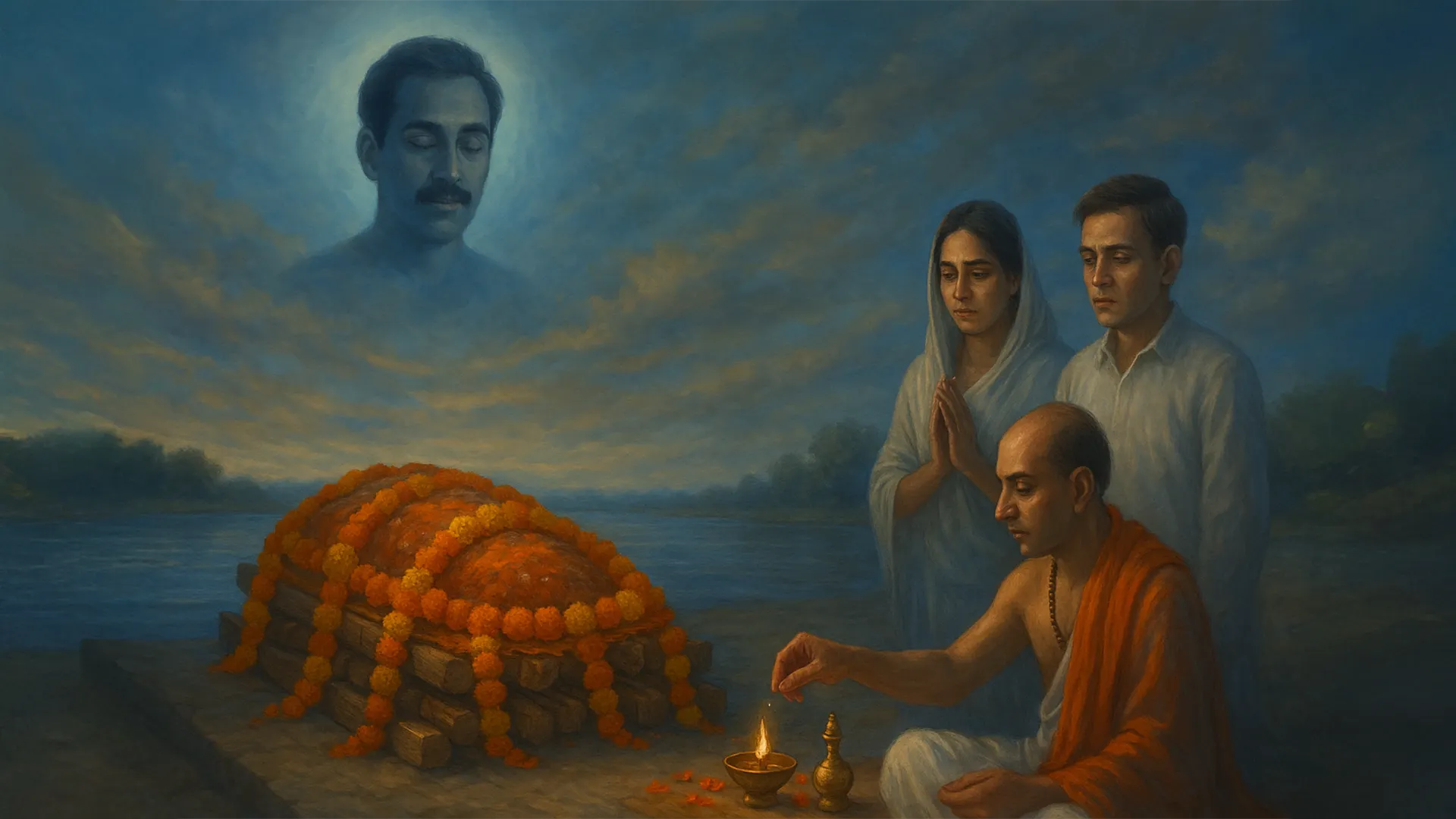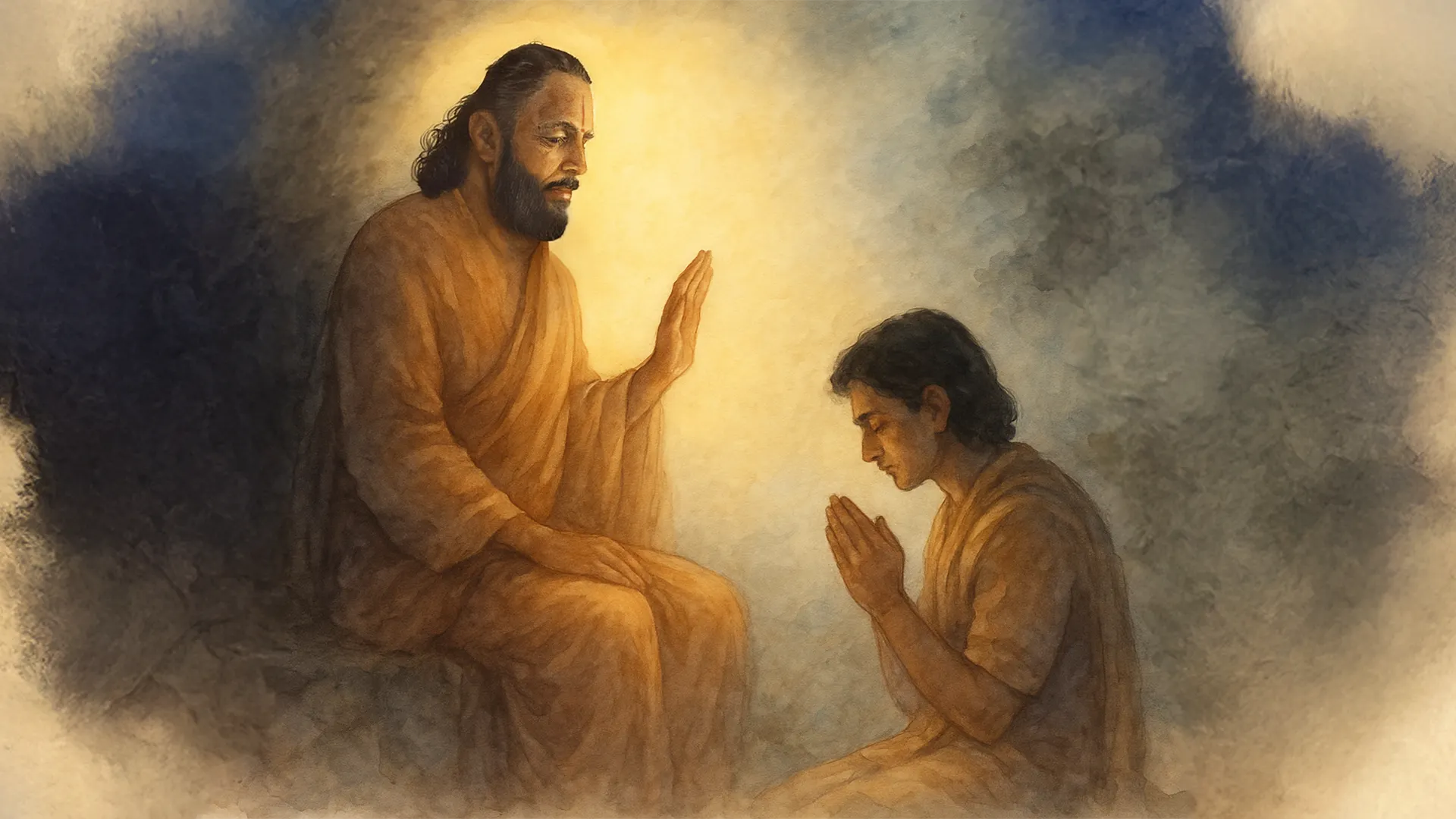The world that we live in has various belief systems that operate on personal faiths, opinions and experiences. It is common to find that many people hop on the bandwagon of opinions enforced upon them by assertive speeches and alluring worldly rewards. These things lead people towards more profound questions about life when they start questioning the meaning of their existence and also that of God. Existentialists and atheists have a narrow perspective towards a life where they discard the concept of fulfilment and eternity of the soul even while craving for inner peace and happiness. However, these concepts may sound abstract to many because we live in times when war, corruption, violence and many such vices act as evil enemies of human beings.
The River of Life: Navigating the Currents of Maya and Devotion
For a fresh perspective, let us, for a moment, assume the scene of a calm river. The water of a river is never perfectly still. A person looking closely at the silent water body can see ripples forming on the surface. The very presence of these ripples is evidence that there is air around, which causes water to have light and easy movements. This condition shall remain as it is as long as no external force is disturbing it. Even a small stone thrown with minimum force can disrupt the river's calm. This river illustration can be taken as a metaphor for human life. Human beings, even if they are spiritual in the least, are like the river. As long as the soul remains in the mortal body, it is entitled to some or the other action. However, those who understand that God resides everywhere:
विश्वं विष्णु: वषट्कारो भूत-भव्य-भवत-प्रभुः(VIshnu Sahasranama)
And that His Supreme Personhood is indestructible and eternal, are comforted by this infinite knowledge and carry on with the material world with as much ease and grace as the river moves with the ever-present air.
However, when external circumstances like negative criticism, lust, pride, doubt and ego hit our flow of action, they cause havoc on a devotee's belief and devotional mood, just like the stone disrupts the water current. The outer force of Maya works with a power that is very difficult to conquer. When the deceptive curtains of material things/pleasures envelop a person, the tangible yet temporary emotions and objects appear true. At the same time, the permanent and transcendental ideas of bhakti and inner peace are considered abstract concepts bereft of serious value.
Equipoise in the Bhagavad Gita: Attaining Tranquility Amidst Life's Challenges
In the Bhagavad Gita (2.38), Lord Shree Krishna emphasizes on the quality of equipoise while motivating Arjun to fulfill his duty of a warrior:
सुखदु:खे समे कृत्वा लाभालाभौ जयाजयौ |
ततो युद्धाय युज्यस्व नैवं पापमवाप्स्यसि ||
sukha-duḥkhe same kṛitvā lābhālābhau jayājayau
tato yuddhāya yujyasva naivaṁ pāpam avāpsyasi
Equipoise is the condition of unaffectedness either in happiness or sorrow, with praises or insults, with success or failure, in good times or bad. When our minds are attached to worldly pleasures, it is distracted by lust, greed, pride, jealousy, and anger. In such a situation, keeping one's mind on God is difficult. However, the Lords provide Arjun with an antidote (BG 2.47)
कर्मण्येवाधिकारस्ते मा फलेषु कदाचन |
मा कर्मफलहेतुर्भूर्मा ते सङ्गोऽस्त्वकर्मणि ||
karmaṇy-evādhikāras te mā phaleṣhu kadāchana
mā karma-phala-hetur bhūr mā te saṅgo ’stvakarmaṇi
He enlightens Arjun with the three rules of attaining equipoise:
- Perform your duties, but never be attached to the fruits of your actions
- Never consider yourself to be the doer of your actions or the cause of their results
- Do not be attached to inaction
A true devotee focuses on God in both favourable and hostile circumstances. When the Kauravas preferred only material possessions over fraternal love, they met their inevitable doom even after Sri Krishna persuaded them towards a higher path. On the other hand, the Pandavas faced innumerable hardships but never allowed their consciousness to divert from Shree Krishna, even for a single moment. It does not come as a surprise then that Shree Krishna always helped them.
Even in Shrimad Bhagavatam, after Akrura takes Krishna to Mathura, the Braj vasis remain true to their chanting of Krishna's name and stay in transcendental bliss even in His physical absence. At the same time, the residents of Mathura were driven by evil tendencies even though He was right amongst them. This is a simple example of how external circumstances do not affect a true devotee.
Today, we have various ideologies that are sceptical of the devotional path. In such situations, a person on the path of bhakti should choose whether to surround themselves with the noise of doubtful debates or to cherish the melodious tunes of the mridangam, singing glories of God. Having the association of pure devotees, taking the shelter of Guru, listening to katha and kirtans, and reading the Scriptures are all ways to remain steady and be successful in the path of bhakti.



